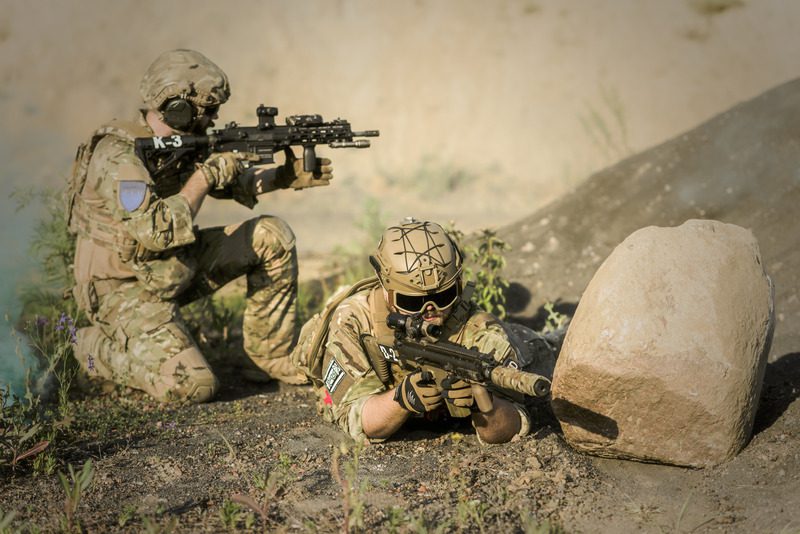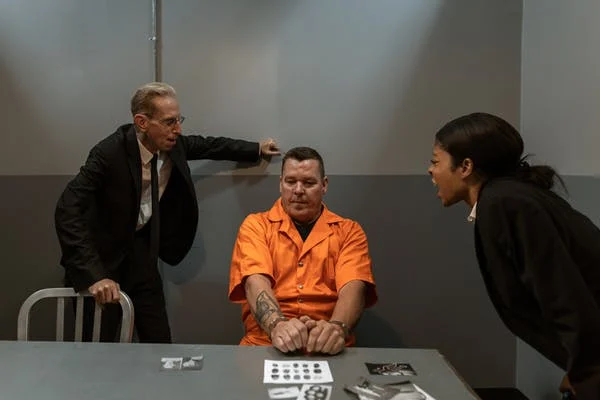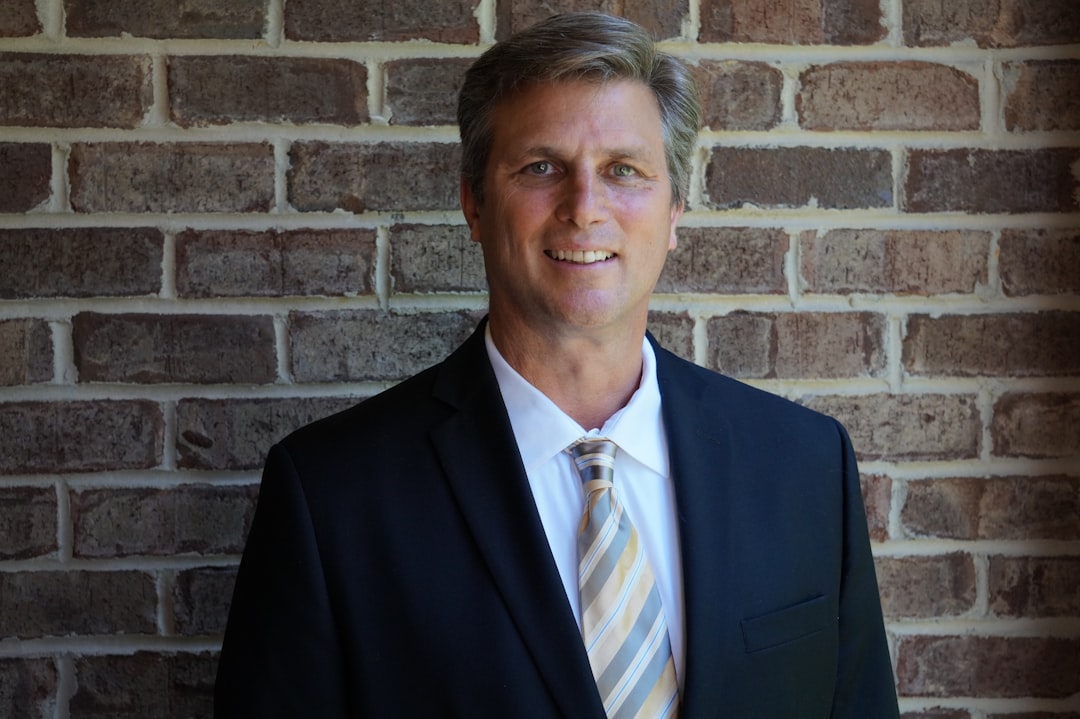10 Traits And Characteristics of a Good Police Officer
Table of Contents
The Top 3 responsibilities of
a Patrol Officer
Traffic Accident
Patrol officers are usually the first ones on scene of an accident. It is important to stabilize the situation as there will be a lot of moving parts.
Community Patrol
Police Officers are a the first line of defense in their respective community. Patrolling and knowing what's going on in your district is vital
Respond to Service Call
Patrol Officers are the primary response unit to different disruptions in the community. Responding to criminal activity in a timely manner is crucial
WATCH The Effective Qualities of a Police Officers
Qualities and Traits of a Good Cop
A career in law enforcement initially consists of a lot of training at the police training academy, as well during a recruit’s Field Training Phase. However there are some qualities, traits and characteristics that make a good police officer.
Identifying these various qualities of a good cop can be challenging, but knowing what characteristics to look for helps forecast what kind of police officer you’ll likely become.
The traits and qualities below aren’t job-specific, but can be carried over into anything you do. For example, punctuality is a characteristic that is respectable in any career. Being on time is a positive quality in general. This trait helps maintain and nurture healthy communication and relationships.
So, what does it take to be a good police officer? First, it requires a strong development of tactical skills, which are learned through intensive professional training at the law enforcement academy (read what is the police academy like?). Second, it requires a solid foundation of qualities that makeup a great leader. We’ll be discussing 9 important skills and traits that are required for the success of any police officer.
Empathy
Definition: the ability to understand and share the feelings of another
Why It’s Important: Police officers are constantly helping people solve problems. In order to do this, an officer must be able to place himself/herself in the shoes of someone else.
This helps the officer develop a higher level of appreciation for the conflict at hand. Empathy helps the police get a better grasp of the situation in its entirety. With the proper development of this soft skill, a police officer can work towards easing the tension of a rough situation.
Compassion
Definition: sympathetic pity and concern for the sufferings or misfortunes of others
Why It’s Important: Police officers are right there at the forefront of tough situations. The last thing you want to do is escalate an already-dangerous situation.
A police officer must be able to sympathize with people who are going through these troublesome times. That’s what compassion is all about, and it’s an absolute necessity for law enforcement. A bit of compassion can truly work wonders for settling a matter in a peaceful manner, which is the main goal.
Non-Verbal Communication
Definition: any system of communication other than speech or writing
Why It’s Important: Every interaction is going to involve non-verbal communication. This includes facial expressions, tone of voice, and hand gestures. Police officers will need to do their best at maintaining peaceful, controlled interactions with people.
This involves avoiding negative non-verbal signals that could potentially cause a conflict. Oftentimes, nonverbal communication can play a greater role than the actual words themselves.
Active Listening
Definition: giving full attention to the speaker and trying to understand the complete message
Why It’s Important: Police officers are here to help the public. This means finding solutions to common problems without escalating the situation. Before you can solve a problem, you’ll need to understand the problem. By being active listeners, police officers are able to understand the scope of these conflicts. Not only that, but the audience will feel more appreciated whenever they are given full attention. That means that this is a win-win situation for both parties.
Adaptability
Definition: the quality of being able to adjust to new conditions
Why It’s Important: Police officers face different situations every single day. None of the service calls are ever exactly the same. This is where adaptability comes into play. You must be able to quickly analyze and adjust to your current situation.
Aside from this, you’ll have to adapt to the ever-changing technology that’s being used by law enforcement. The social climate is also constantly changing, and officers must be able to adapt to this as well.
Building Trust
Definition: working towards forming a relationship based on reliability
Why It’s Important: You build trust by backing up your promises, acting in a safe/secure manner, and proving your reliability to those around you. As a police officer, you’ll want to hold your words and actions to the highest standards possible. The police are here to serve the community. And the only way to efficiently do that is by building up trust. Perception goes a long way in the world of law enforcement.
Critical Thinking & Observation
Definition: objective analysis and evaluation by gauging a situation for information
Why It’s Important: A routine call just doesn’t exist in law enforcement. A police officer has to be able to think critically on his/her feet in order to efficiently help members of the community. Being detail-oriented is going to help a lot when it comes to observing specific situations. You’ll need to be sharp mentally, visually, and emotionally while making your observations. If you often miss the details of situations, then you should work hard to build this skill.
Conflict Resolution
Definition: the methods and processes… which promote the peaceful ending of social conflict
Why It’s Important: Police officers specialize in the handling of conflicts. Being an officer is all about reaching a resolution in the most controlled and calm way as possible. As a member of law enforcement, you’ll want to do your best to find a peaceful solution to problems. There are three main things you need to consider during a conflict. You need to think about de-escalation, proper communication, and the levels of emotions involved in the situation.
Work-Life Balance
Definition: the balance between time spent at work, and time spent outside of work
Why It’s Important: Law enforcement never takes a vacation. Police officers work all throughout the clock to keep the communities safe. Being an officer requires diving into dangerous situations constantly. It’s truly a stressful career that must be balanced with a healthy personal life outside of work. By maintaining a healthy personal life, you’ll be able to counterbalance all the stress that can be thrown at you on a daily basis. And this is a big key to officer success.
Diversity & Inclusion
Definition: Diversity refers to the traits and characteristics that make citizens in your community unique, while inclusion refers to the behaviors and social norms that ensure every person feel welcome.
You will encounter many different people in this profession from different cultures, economic groups, religions, ethnic groups, and races. When dealing with the public, making people feel that they are valuable and welcomed is a good trait to have as a cop.
If you desire to get into police work there is a good chance you will need to work with people from several different racial, language, ethnic, or economic groups.


















